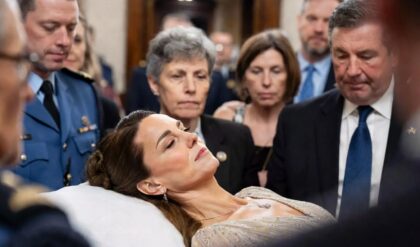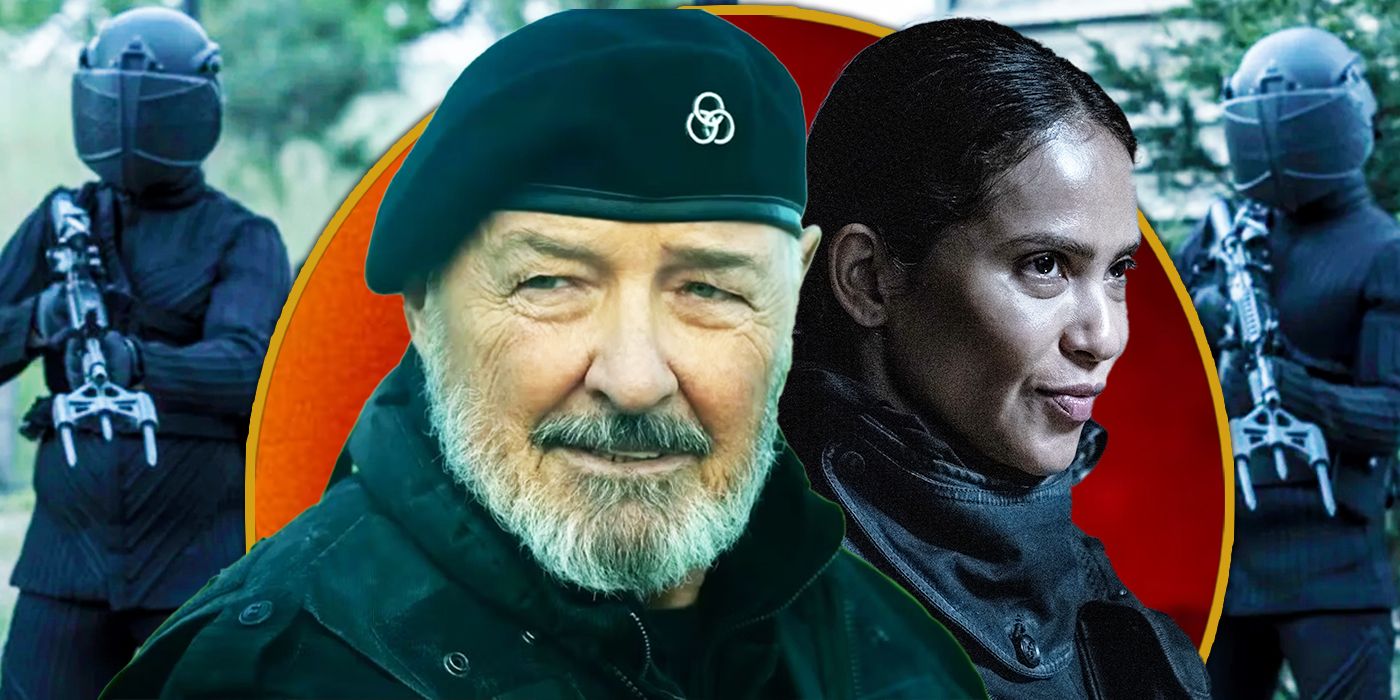
to a feel-good ending with big implications for the future.
Brandt and O’Quinn discuss their characters’ changed mindsets, deaths, and the ethical dilemmas posed by Rick and Michonne’s actions.
The Walking Dead: The Ones Who Live finale ended in a way that brought resolution to its six-episode arc while encouraging audiences to think of future possibilities. The series finale saw Rick and Michonne reunited with their children and presumably rejoining their community at Alexandria and stopping the machinations of the Civic Republic Military along the way. By the end of the episode, the CRM’s Major General Beale has died (twice), the organization has dissolved, and its plot to destroy the city of Portland was thwarted.
Screen Rant’s The Walking Dead: The Ones Who Live review praised the way the series dialed into the romance between Rick and Michonne, but their devotion to their love overshadowed a very real threat relayed by Beale in the finale. The end of the season saw Terry O’Quinn’s Beale and Lesley-Ann Brandt’s Pearl Thorne fight to the death for their cause, however murderous, only for Rick and Michonne to ride off into the sunset upon their defeat. It’s a feel-good ending that may have huge implications for the future of The Walking Dead universe.
Screen Rant interviewed Terry O’Quinn and Lesley-Ann Brandt about the mindset of their characters in the finale episode. They touch on Beale’s logical, albeit morally bankrupt, plan, and shoot down the idea that there was ever a chance of romance between Rick and Thorne.
Lesley-Ann Brandt Explains Pearl Thorne’s Changed Mindset & Shoots Down Rick/Thorne Romance
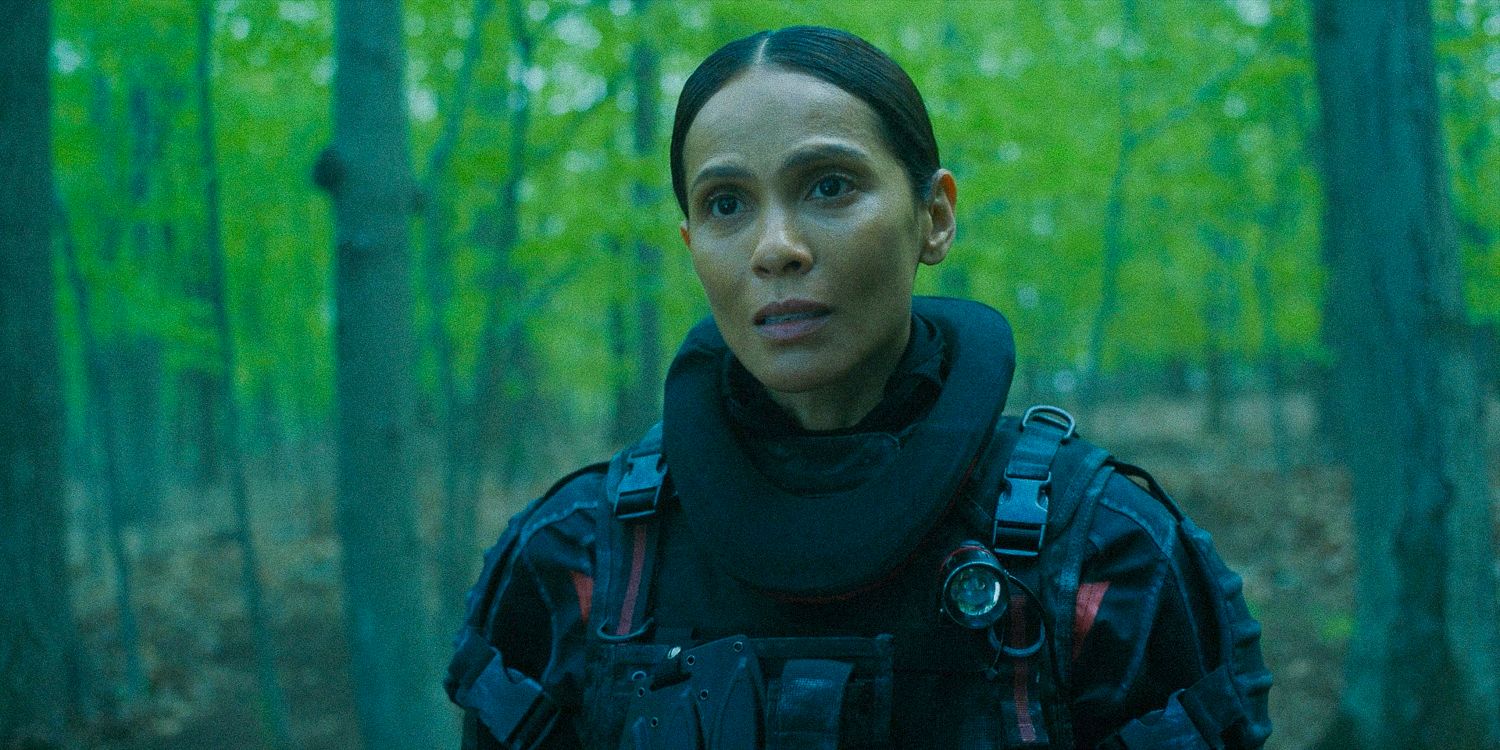
A surprising moment in the spinoff’s finale is a conversation between Pearl Thorne and Rick Grimes that shows how much Thorne’s mind has changed since he left the CRM. Of course, with The Walking Dead: The Ones Who Live cast members only appearing when they are most relevant to the story of Rick and Michonne, it makes sense that Thorne’s development would happen off screen. Brandt reflected on Thorne’s changed mindset, revealing a cut scene in the process, and shot down the idea that a Rick and Thorne romance was ever considered.
Lesley-Ann Brandt: I think there’s a lot of trauma, which is not explored in the show, because the show was about Rick and Michonne. But [Thorne] is coming into the show having said goodbye to someone she really loved and intentionally shutting off a part of herself in order to survive. Under Okafor, it [was] like having a really great mentor who can guide you, but when he dies, the only person she has any sort of familial feelings towards—and not romantic—is Rick. When he starts to shift and change…
It’s not that she’s power hungry. I think that’s a misguided interpretation of the change, if anyone has that. I think it’s more someone truly buying into the ideology and to the plan—someone who truly believes that what they’re doing is the right thing. [She’s] playing the part–being the chess piece. She’s a Marine, so she’s used to following orders.
Rick is different. He questions things, and he doesn’t blindly follow. But the relief that she feels when she sees him come back—that’s a genuine, like, “Oh, my God. You believe too.” It’s almost cult-like, in a way. At the end, when she is dying, she realizes love doesn’t die. [She] was put at a crossroads, [she] made a decision, and he made a different decision. If he had told her sooner who Michonne was, maybe he could have appealed to the friend that [he was] coming up with.
A scene that never made the pilot episode was when he chopped his hand off. Before he chopped his hand off, he was in a helicopter and his hands are shaking, and she mistook that for [him being] nervous. She doesn’t know she’s sitting next to Rick Grimes, and she says to him, “Hey, it’s going to be okay.” That part of it never made the edit, but I think that’s essentially where their relationship started. There’s a deep betrayal when she comes around the corner with the gun. She’s realizing, “You’ve been lying to me the whole time.”
Here’s what Brandt said when asked if a Rick and Thorne romance was ever considered in order to drive the point home even further:
Lesley-Ann Brandt: No, not at all. Not at all. I was not interested in exploring any kind of love triangle. I think, one, that it’s kind of cliche, especially when you’re telling a love story about Rick and Michonne. And two, these platonic male/female relationships exist in real life in military settings every day. Let’s explore that. Let’s explore friendship in that way. Let’s explore betrayal with that context. It doesn’t always have to be sexual. I just never at all interpreted that relationship [that way]. As I’ve said before, I knew the fans would come for me. They were already going to come for me for trying to take out Michonne. I don’t need that too.
Terry O’Quinn & Lesley-Ann Brandt Reflect On Filming, And Advocating For, Their Deaths
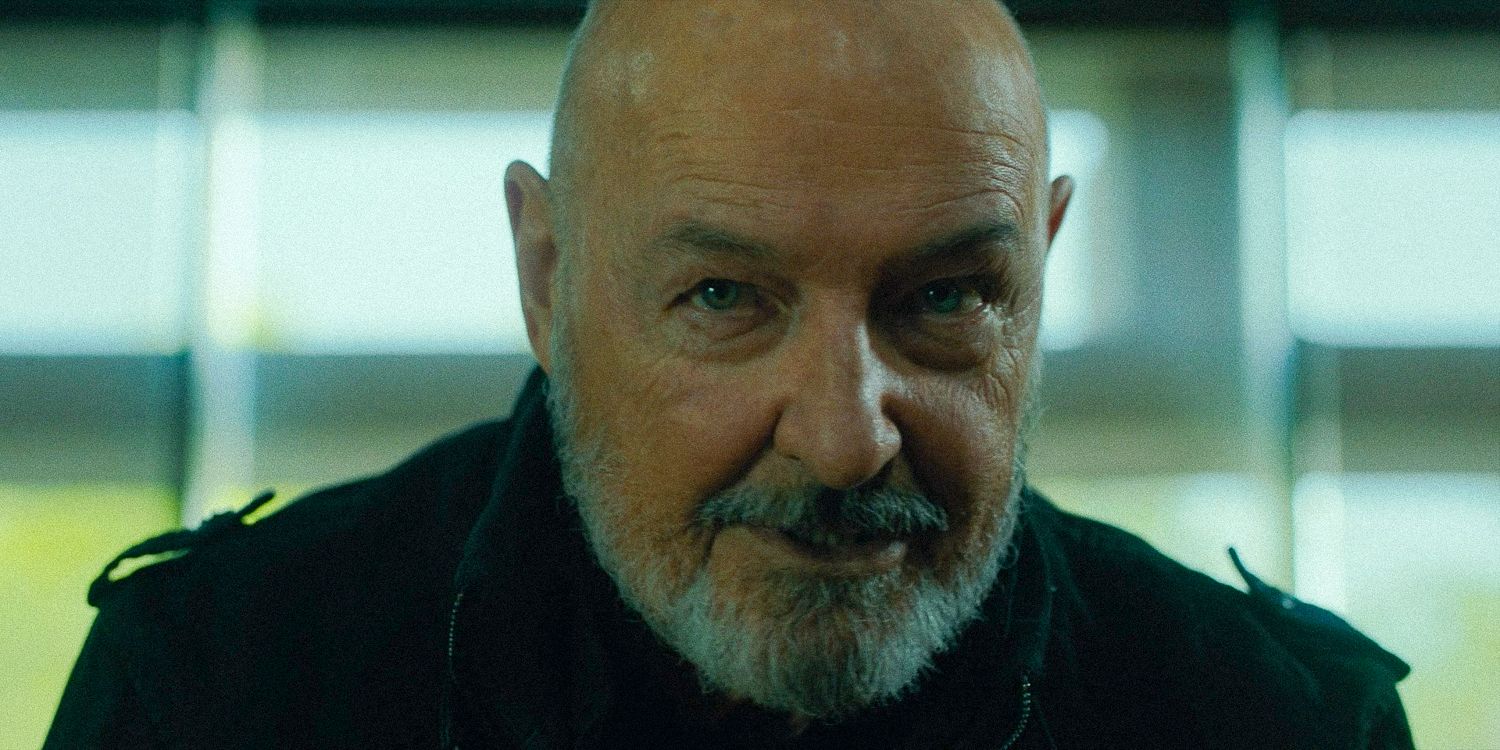
The Walking Dead: The Ones Who Live finale seemingly sees both Major General Beale and Pearl Thorne dead. Each character’s death has a fun moment of tonal levity reminiscent of the end of the series’ episode 4 getaway, as both Beale and Thorne were defeated immediately following a tagline (Rick’s “We’re not dead. You are” to Beale, and Michonne’s “Love never dies” to Thorne). When asked about carrying authenticity through those moments, O’Quinn and Brandt shared their experience filming those scenes, and Brandt reveals that she actually advocated for Pearl Thorne to die.
Terry O’Quinn: Andrew Lincoln carried that. All I had to do was have a little bit of stigmata where he pierced my hand with a sword. I just had to have a fight, try not to hurt myself, and see when the stunt man was necessary. Most of it, honest to God, was on my back and on Andrew. Andrew’s terrific, and he sold that beautifully.
Lesley-Ann Brandt: I filmed in, like, 78-degree humidity and full tactical gear. I was deranged underneath. For the most part, that is me fighting. It was very fun to have a day on the set of The Walking Dead where you’re fighting Rick Grimes in the morning, and then Michonne in the afternoon. It was kind of iconic. I was exhausted by the time Danai got in there. She’s like, “Let’s go!” She’s coming out swinging, and I’m like, “Girl, I’ve been fighting.” But I love it.
When I met with Scott initially, I said, “I think she has to die because of what she represents, and I hope it’s at the hands of Michonne.” He was very sort of, “Well, we’ll see about that.” I’m sure he already had his plan, but I came into it feeling like [Thorne] represents something that has to die in order for them to live, and in order for that part of humanity to thrive.
Of course, there is the slightest chance that Thorne is alive:
Lesley-Ann Brandt: You don’t see her dying. I don’t know. You never see the walkers descend on her, but she’s probably roaming around with them.
Are Rick & Michonne Bad For The World Of The Walking Dead?
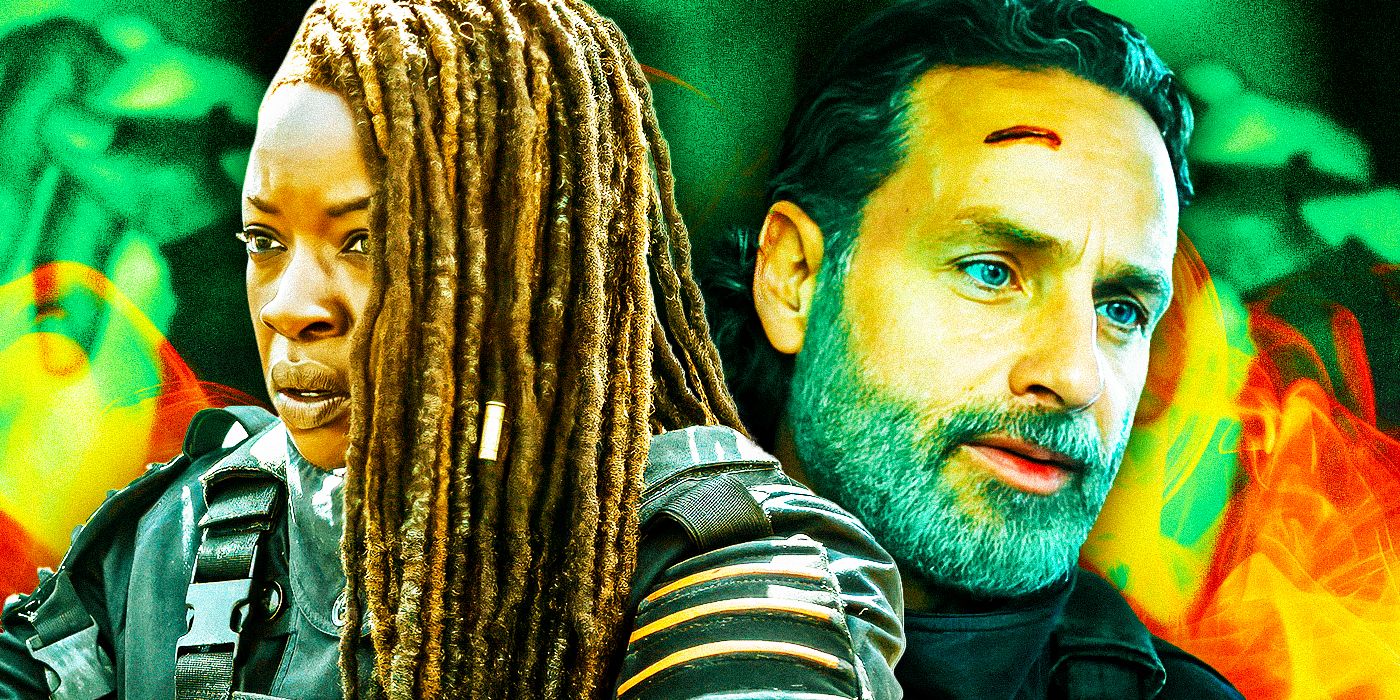
Major General Beale drops a harsh truth on Rick in the finale, telling him the CRM’s models predict that humanity will be extinct in 14 years. Beale’s plan—destroying other cities, stealing their children, turning the Civic Republic into a military state, and expanding from there—is brutal, but it comes from a genuine concern about the future of the world. With the end of the season not clearly setting up The Walking Dead: The Ones Who Live season 2, the question is: have Rick and Michonne destroyed humanity’s only hope? Brandt and O’Quinn touched on the subject while discussing their own characters’ episode 6 motivations.
Terry O’Quinn: Everything that he said about his plan made sense to me. Whether you agree with it or not—it may not be terribly moral or ethical—it was logical. Nobody else seemed to present a plan to save humanity, as far as I know.
Rick and Michonne, individually, are willing to kill people, lie, and do whatever they had to do for their own survival. [Beale] just did it on a much greater scale. It certainly isn’t something that I would think about doing, but that that was his solution for saving all of humanity.
Lesley-Ann Brandt: I think what is abundantly clear now in this world is that the [dead] are a threat, but they’re not the biggest threat. The threat is human beings. The threat is the decisions human beings make. [With] a community like Alexandria… sure, you want to live, but how long for? There are still walkers around.
Terry O’Quinn: There are a billion walkers, and there will be more. You just got the whole CRM—they’re all walkers now.
About The Walking Dead: The Ones Who Live
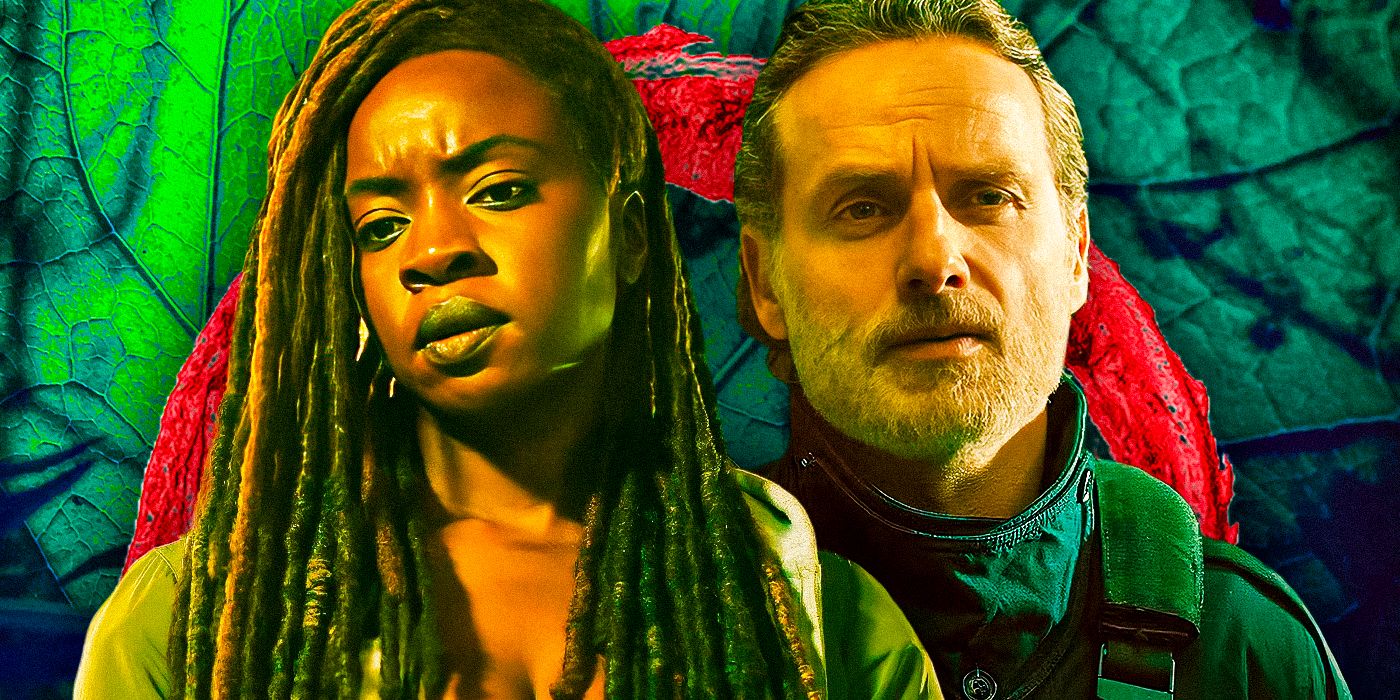
The Walking Dead: The Ones Who Live presents an epic love story of two characters changed by a changed world. Kept apart by distance. By an unstoppable power. By the ghosts of who they were. Rick and Michonne are thrown into another world, built on a war against the dead… And ultimately, a war against the living. Can they find each other and who they were in a place and situation unlike any they’ve ever known before? Are they enemies? Lovers? Victims? Victors? Without each other, are they even alive — or will they find that they, too, are the Walking Dead?
Stream The Walking Dead: The Ones Who Live on AMC.




